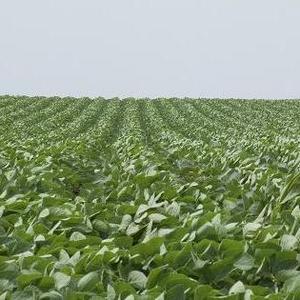Evogene, DuPont Pioneer extend joint work to fight soybean rust

October 16, 2013
BY Ron Kotrba
Plant genomics company Evogene Ltd. announced a one-year extension and expansion of its multiyear research collaboration with DuPont Pioneer for developing soybean varieties resistant to Asian Soybean Rust, a major disease that strikes the crop in prime growing regions of North and South America.
As part of their original collaboration signed in 2011, Evogene and Pioneer established a joint research program to identify and validate novel genes portraying the highest probability for in-plant resistance to Asian Soybean Rust. Under the program, novel genes identified by Evogene will be evaluated and validated by Pioneer in their soybean research lines as possible leads for further development and commercialization.
Under the extension, the parties will add Evogene's trademarked Gene2Product computational platform to the gene discovery program. The platform, which offers gene optimization by utilizing advanced gene stacking, or the combining of multiple genes, and regulation prediction, is designed to improve the efficacy and probability of success of the resulting novel seed products.
Advertisement
“Under the … program to date, significant progress has been made and an excellent collaborative relationship established,” said Ofer Haviv, Evogene president and CEO.
“Asian soybean rust remains a challenge for growers,” said Gusui Wu, senior research director with DuPont Pioneer. “We value our collaboration with Evogene and their technology strengths to help deliver effective resistance to this devastating disease to our customers.”
Advertisement
The original collaboration program included partial funding by the Israel-U.S. Bi-national Industrial Research and Development (BIRD) Foundation, which supports and encourages cooperation between Israeli and American companies in various areas of technology.
Evogene’s current gene discovery activity in the field of biotic stresses—stresses caused by pests such as fungi and insects—is one of the company’s four product divisions.
“I believe the field of acute biotic stresses holds a significant opportunity for Evogene,” Haviv said. “This opportunity will be derived from expanding our existing programs, as well as focusing on new biotic stresses that are not currently part of our discovery portfolio.”
Related Stories
The USDA’s National Agricultural Statistics Service on June 30 released its annual Acreage report, estimating that 83.4 million acres of soybeans have been planted in the U.S. this year, down 4% when compared to 2024.
SAF Magazine and the Commercial Aviation Alternative Fuels Initiative announced the preliminary agenda for the North American SAF Conference and Expo, being held Sept. 22-24 at the Minneapolis Convention Center in Minneapolis, Minnesota.
Scientists at ORNL have developed a first-ever method of detecting ribonucleic acid, or RNA, inside plant cells using a technique that results in a visible fluorescent signal. The technology could help develop hardier bioenergy and food crops.
The 2025 International Fuel Ethanol Workshop & Expo, held in Omaha, Nebraska, concluded with record-breaking participation and industry engagement, reinforcing its role as the largest and most influential gathering in the global ethanol sector.
TotalEnergies and Quatra, the European market leader in the collection and recycling of used cooking oil, have signed a 15-year agreement beginning in 2026, for the supply of 60,000 tons a year of European used cooking oil.
Upcoming Events










